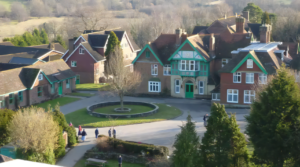The English Village Where There’s No Crime, Debt, or Homelessness – And No Pay Cheques
Tucked away in the English countryside lies a unique village where money doesn’t dictate people’s lives. In this remarkable community, residents live without paychecks, yet crime, debt, and homelessness are virtually nonexistent. Instead of relying on traditional wages, they thrive on a self-sufficient, communal system that prioritizes shared resources and collective well-being over personal wealth.
A Community Without Paychecks
Unlike the rest of the UK, where people work for salaries to pay for housing, food, and utilities, this village operates on a cooperative model. Every resident contributes to the community in different ways—whether through farming, cooking, teaching, or building—and in return, they receive everything they need: food, shelter, healthcare, and education.
The absence of personal income doesn’t mean people live in poverty. Instead, their needs are met through shared resources and sustainable living. The village grows its own food, generates its own energy, and builds homes using eco-friendly materials, ensuring that everyone has equal access to necessities.
No Crime, No Debt, No Homelessness
One of the most astonishing aspects of this village is its lack of crime, debt, or homelessness—issues that plague many modern societies. Since there’s no financial inequality, there’s little motivation for crime. Residents don’t compete for wealth, as everyone has what they need.
With no rent, mortgages, or consumer loans, debt is unheard of. Instead of working for profit, people contribute to the community based on their skills and passions. This system eliminates financial stress, leading to happier and healthier lifestyles.
Homelessness is also a non-issue, as every member is provided with a home. Newcomers who want to join must be willing to embrace the community’s way of life and contribute in a meaningful way. Once accepted, they are given a place to live and access to the same shared resources as everyone else.
How Do They Sustain Themselves?
The village’s economy is based on self-sufficiency and sustainability. Key aspects of their system include:
- Agriculture: Residents grow organic fruits and vegetables, raise livestock, and produce dairy products.
- Renewable Energy: They harness solar and wind power to generate electricity.
- Trade and Barter: While money is rarely used within the village, they trade handmade goods and organic produce with nearby towns for essential items they can’t produce themselves.
- Skilled Work: Some residents offer artisan crafts, holistic therapies, or educational programs, bringing in small amounts of external income that benefit the entire community.
A Different Way of Life
Residents describe their lifestyle as stress-free and deeply fulfilling. Without the pressure of making money, people focus on what truly matters—relationships, creativity, and community well-being. Children grow up in a nurturing environment, elders are cared for, and people have the time to pursue meaningful activities rather than being trapped in a 9-to-5 grind.
While this way of life isn’t for everyone, it serves as an inspiring example of how communities can thrive without money-driven systems, creating a more balanced and harmonious society.
